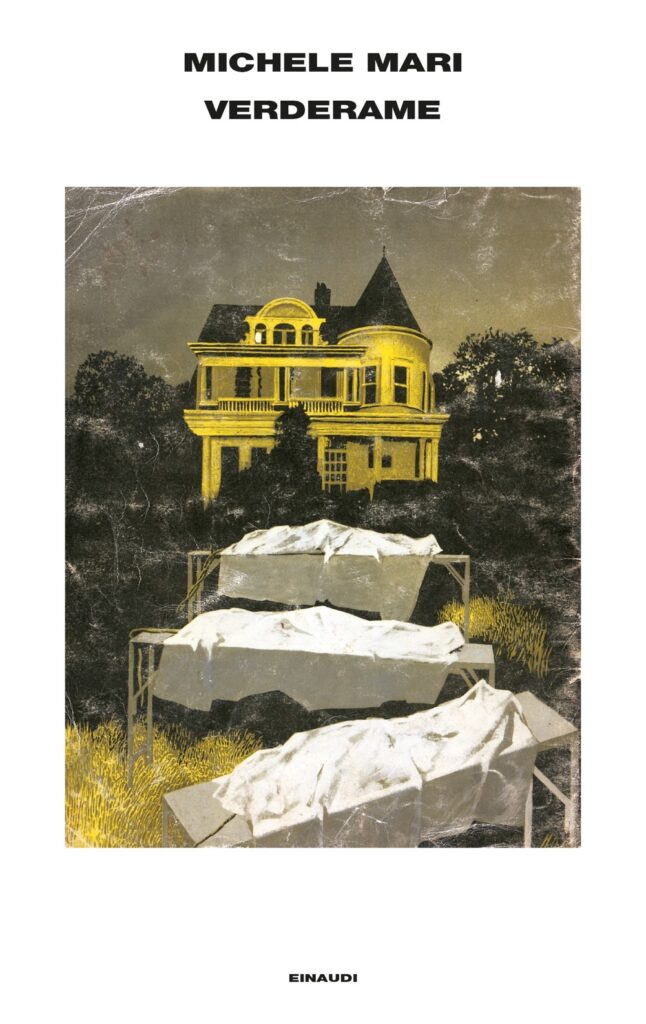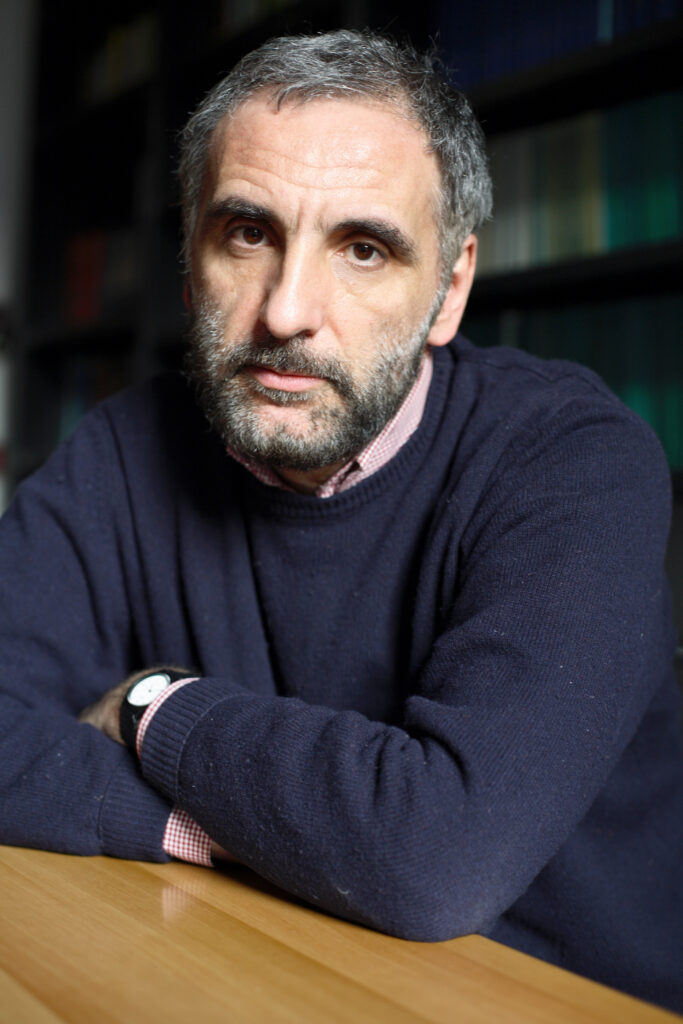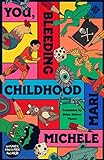When it comes to the pleasures of reading, there is no such thing as growing up. Or at least certain works of literature make it tempting to think so—as if there were always the same young reader buried inside us, one who comes back to life each time we lose ourselves in the beauty and mystery of a good book. For me, Michele Mari’s Verdigris is one such book. When I read it for the first time, I relived a mix of excitement and suspense, of elation and tension and horror that I thought had ended with the books and stories of my childhood. Having found the novel so enjoyable and gripping, and its world so thoroughly immersive, I wanted to recreate that experience and that world as fully as possible for anglophone readers. What I mean, essentially, is that I wanted this translation to live as a book in English, and remain, like Mari’s original—for which I’ll use the Italian title of Verderame going forward—a unique celebration of language and an utterly absorbing mystery. Conversely, what I did not want it to be was a series of humorless footnotes, of arrows pointing to the significance of Italian words and puns, while asking readers to imagine for themselves linguistic dynamics that weren’t actually recreated by the translation. It’s therefore worth detailing how I approached the two central linguistic elements that pull the reader into this rabbit hole of a novel, and which can be divided into the two categories of wordplay, or word association, and of dialect.
Far from being ornamental, wordplay serves a very specific function in Verdigris. When thirteen-year-old Michelino—who spends every summer at his grandparents’ house in the town of Nasca, near Lake Maggiore—learns that their gardener and general factotum Felice is losing his memory, he tries to create a mnemonic system to help piece his fractured world back together. As Felice forgets more and more words, Michelino supplies a new alphabet composed of images and objects that spark an immediate association through sound, thereby recalling the name of the forgotten thing. The point of most of the wordplay is, therefore, its immediacy. For this reason, the associations I have used in English are intended to feel just as direct; otherwise, they would serve very little use to Felice and would contradict their stated purpose. This has required a few minor shifts in the dialogue between the two characters, a couple of altered anecdotes, but no significant changes to the story itself. In making these adjustments (all of which have received Michele Mari’s complete approval) I have considered it essential that they fit  naturally in the context of the novel and in what could be called the broader Mari universe. For example, while the name of Nasca is originally evoked by the baby from a nativity scene and the word nascita, or “birth,” in the translation it is recalled by the word “nascar” written on one of Michelino’s Mercury toy cars, a childhood obsession that will already be familiar to readers of Mari’s story collection You, Bleeding Childhood. As opposed to the majority of these individual mnemonic associations, the most complicated instance of wordplay, which even involves an unforgettable anagram, proves to be a key piece in the mystery animating the novel. Accordingly, the English version of this multilayered puzzle does not entail any significant break from Mari’s original, but instead creates an extremely faithful parallel.
naturally in the context of the novel and in what could be called the broader Mari universe. For example, while the name of Nasca is originally evoked by the baby from a nativity scene and the word nascita, or “birth,” in the translation it is recalled by the word “nascar” written on one of Michelino’s Mercury toy cars, a childhood obsession that will already be familiar to readers of Mari’s story collection You, Bleeding Childhood. As opposed to the majority of these individual mnemonic associations, the most complicated instance of wordplay, which even involves an unforgettable anagram, proves to be a key piece in the mystery animating the novel. Accordingly, the English version of this multilayered puzzle does not entail any significant break from Mari’s original, but instead creates an extremely faithful parallel.
 The novel’s linguistic complexities are heightened by the fact that the character Felice speaks only in dialect. First of all, it should be noted that dialects in Italy are not derivations from standard Italian, which has its foundation in Florentine; most Northern Italian dialects are generally classified in a different group of Romance languages, often referred to as Gallo-Italic. This means that in Verderame Michelino and Felice essentially speak to each other in two distinct languages. Felice’s dialogue thus presents considerable difficulties for Italian readers who are unfamiliar with Gallo-Italic dialects—in other words, the majority of Italian readers today, with even regional use of these dialects in the north declining precipitously with every new generation—but quite often Michelino’s responses lend an interpretive hand. Surprisingly, the book’s effective multilingualism can actually help the reader follow the story: every line of dialogue, every word in fact, makes immediately apparent which of the two characters is speaking, and this is a feature that I have tried to preserve. Mari has long been hailed as one of Italy’s most linguistically gifted authors, capable of inventing new languages—including those of supernatural creatures and monsters—and of beautifully recreating older literary styles and forms. To put it plainly, there is no world in which this author would have written such a dialogue-heavy book with both speakers communicating in everyday Italian. The implication for the translation is quite simple: to lose the book’s sense of linguistic inventiveness and diversity, by having both characters speak the same standard form of English, would have meant losing the book.
The novel’s linguistic complexities are heightened by the fact that the character Felice speaks only in dialect. First of all, it should be noted that dialects in Italy are not derivations from standard Italian, which has its foundation in Florentine; most Northern Italian dialects are generally classified in a different group of Romance languages, often referred to as Gallo-Italic. This means that in Verderame Michelino and Felice essentially speak to each other in two distinct languages. Felice’s dialogue thus presents considerable difficulties for Italian readers who are unfamiliar with Gallo-Italic dialects—in other words, the majority of Italian readers today, with even regional use of these dialects in the north declining precipitously with every new generation—but quite often Michelino’s responses lend an interpretive hand. Surprisingly, the book’s effective multilingualism can actually help the reader follow the story: every line of dialogue, every word in fact, makes immediately apparent which of the two characters is speaking, and this is a feature that I have tried to preserve. Mari has long been hailed as one of Italy’s most linguistically gifted authors, capable of inventing new languages—including those of supernatural creatures and monsters—and of beautifully recreating older literary styles and forms. To put it plainly, there is no world in which this author would have written such a dialogue-heavy book with both speakers communicating in everyday Italian. The implication for the translation is quite simple: to lose the book’s sense of linguistic inventiveness and diversity, by having both characters speak the same standard form of English, would have meant losing the book.
While the presence of dialect in general can complicate the task of a translator, Felice’s speech in Verderame is extremely particular. Felice comes from a small town in the Varesotto, an area comprising Varese and its hinterland in the northwesternmost part of Italy’s Lombardy region. Mari, a Milanese author who did not grow up speaking a dialect himself, relied heavily on literary texts to create Felice’s speech, but these sources were principally Milanese. This is partly because Milanese, in comparison to the Varesotto dialect, has an especially rich poetic history, and Mari drew on a range of poets spanning from the eighteenth to the twentieth centuries. With a Milanese foundation, Felice’s speech in the novel is rounded out with elements of Varesotto and other Lombard and Northern Italian dialects, resulting in a willful pastiche. It should also be noted that although Milan and the Varesotto are both in Lombardy, Italian dialects do vary considerably even within the same region. So, while it is realistic that a rural character like Felice would speak in dialect in the 1960s, his speech itself seems to present a break from reality. Mari has always maintained that his novel, despite taking direct inspiration from real-life figures and events, is a gothic fantasy, and Felice’s geographically imprecise language can be considered a part of this fantasy, just as certain erudite qualities of young Michelino’s dialogue invite readers to suspend their disbelief. The fact that these two characters continuously understand each other, without any real hiccups, subtly intensifies the novel’s surreal quality from its opening pages. In short, no Italian reader would fully recognize their own language in Felice’s, and many readers would encounter it as something inherently foreign.
Though the situation concerning dialects in English is quite different, I have sought to maintain these integral parts of Mari’s novel, with Felice’s and Michelino’s speech remaining as distinct from one another as possible, and with Felice communicating in a manner that is all his own, a personal language that does not closely adhere to any reader’s spoken reality, and which instead sets this lonely character further apart from the other figures in the book, all of whom speak standard Italian in the original. At the same time, actual dialectal and vernacular traits do not exist in a vacuum or untied from specific locations and communities, and the speech of the anglophone Felice largely finds inspiration in different modes of British and, even more so, Irish speech—though the result is, again, a knowingly unfaithful and rather unbelievable amalgam. While it would be inherently absurd to claim that any location in the Anglosphere is equivalent to the Varesotto (and it’s perhaps no less arbitrary or absurd to claim that Italian characters should speak a supposedly neutral mid-Atlantic English, which is often desired in translations), there are various reasons why Felice seems at home in an Irish-influenced voice, reasons that go beyond more superficial associations in the international popular imagination, such as with rural settings. The novel’s protagonist, Michelino, sees the world through a literary lens, and many of Felice’s supernatural beliefs will feel familiar to  readers of Irish literature and folklore. His conviction that the dead go on talking underground, for instance, is reminiscent of the most famous Irish-language novel ever written, Máirtín Ó Cadhain’s Cré na Cille, just as his warning that the real versions of people have been replaced by copies mirrors the folklore of fairies and changelings.
readers of Irish literature and folklore. His conviction that the dead go on talking underground, for instance, is reminiscent of the most famous Irish-language novel ever written, Máirtín Ó Cadhain’s Cré na Cille, just as his warning that the real versions of people have been replaced by copies mirrors the folklore of fairies and changelings.
But more than anything, I wrote Felice’s speech the way I heard Felice’s speech, in all its eccentricities and contradictions, from the moment I imagined the character in English. In placing myself in the shoes of the novel’s young protagonist, I realize I have essentially done to the anglophone Felice what Mari and Michelino together did to the original character. Felice’s language in Verderame is a mix of childhood associations and of pure literature: pieces of dialect learned in Nasca, where Mari spent his childhood summers, and in his hometown of Milan, melded with the formal dialect of poetic traditions, with the language of literary texts. Irish speech patterns were constantly present in my childhood and among my immediate family before I ever lived in the country, but—and perhaps more importantly—Hiberno-English has found much of its most persistent literary expression in written forms that echo but do not wholly match people’s actual speech, such as the poetic and dramatic vernaculars of the Irish Literary Revival in the early twentieth century, or the dialogue in the Irish gothic, Romantic, and folkloric texts that came before it.

For the most part, Felice’s speech in the translation is not written to match any specific accent phonetically. At times I have used alternate spellings or variants, such as “divil” for “devil,” or “ye” for “you,” the pronunciation of which is closer to “yeh” or “yuh” than to “yee.” Many of these variants—which continue to be used particularly in Ireland, and in some cases in Scotland—actually connect back to older English spellings and pronunciations, and should not be misinterpreted as deviations from today’s standard English. For the most part, the spelling differences in Felice’s speech, which I’ve used as a further means of distinction, are instead due to his many elisions and truncated words: to the extent that his written speech is phonetic, it is generally so in highlighting what sounds he does not produce. Felice, as we learn from the very first pages, is losing his memory, forgetting even the most essential words, and these skipped letters and sounds are also intended to give the more immediate impression that his speech is coming apart at the seams, disintegrating, or “losing pieces of itself,” to quote the narrator.
This is just one way in which Felice’s dialect, rather than being lost or hidden, is meant to play an active role in the translation. The use of dialect and vernacular—once incredibly common in the dialogue of anglophone literature, and an inextricable part of many of its most famous characters—has gradually become less widespread, and the reader of Verdigris might instinctively feel that Felice’s speech is a feature that “now truly belong[s] to literature, and to an old literature at that,” to repurpose the words of Michelino once again. The very presence of this willfully exaggerated dialect sends an implicit message that we are in a literary world, a world imbued with gothic horror and fairy tales, with mystery and fantasy, with nineteenth-century adventure novels, detective stories, and bildungsromans. Michelino, in fact, knowingly projects the books he has absorbed onto his companion, and Mari’s decision to have Felice speak in a dialect, one that isn’t shared by the book’s narrator or protagonist, is a nod to older literary conventions, and especially to the use of vernacular in gothic and adventure fiction written in English. Again, this is not to say literature exclusively from England—the two unnamed works of gothic fiction that loom the largest, that of the vampire and that of the monstrous double, were written by authors from 
 Ireland and Scotland: Bram Stoker and Robert Louis Stevenson. In terms of the latter, Michelino is steeped not only in his Strange Case of Dr. Jekyll and Mr. Hyde, and an important influence in blurring Felice’s anglophone speech—and in making it all the more unique and unplaceable—has been the vernacular speech of Stevenson’s adventure novels, especially the one Michelino loves the most, Treasure Island. Felice, after all, is never shown having a conversation with any characters besides this thirteen-year-old boy, and we might wonder if other people would hear the same speech at all, or if what Michelino hears is to a certain extent another literary projection. Finally, if any of these influences on Felice’s anglophone speech should seem tenuous or arbitrary, one should consider that the question of arbitrariness—as well as that of projection and ventriloquism—is addressed directly in the novel’s final pages, in one of the most memorable scenes in the history of Italian horror.
Ireland and Scotland: Bram Stoker and Robert Louis Stevenson. In terms of the latter, Michelino is steeped not only in his Strange Case of Dr. Jekyll and Mr. Hyde, and an important influence in blurring Felice’s anglophone speech—and in making it all the more unique and unplaceable—has been the vernacular speech of Stevenson’s adventure novels, especially the one Michelino loves the most, Treasure Island. Felice, after all, is never shown having a conversation with any characters besides this thirteen-year-old boy, and we might wonder if other people would hear the same speech at all, or if what Michelino hears is to a certain extent another literary projection. Finally, if any of these influences on Felice’s anglophone speech should seem tenuous or arbitrary, one should consider that the question of arbitrariness—as well as that of projection and ventriloquism—is addressed directly in the novel’s final pages, in one of the most memorable scenes in the history of Italian horror.
The real-life Felice, as Mari has revealed to me, actually did speak in a manner that was entirely unique, in his own idiolect, and this is also the case in the translation. His mode of communication is just one of the many elements that definitively place this character in the category of the other; or to put it in Michelino’s supernatural terms: “The charm of that whole story, moreover, was bound up in the fact that it concerned another, not to mention those quintessential others who are monsters.” Though the real Felice apparently spoke very little, and quite unintelligibly, in literature Michelino and Felice can communicate endlessly, carrying out all the imagined conversations that never took place in real life, with Michelino assuming the all-important role of Felice whisperer. Our protagonist acts as a bridge between the outside world and the wholly singular language of his companion, a figure who is both protective monster and fragile friend, a product of literature and a resurrected piece of the author’s past.
This essay was originally published as a translator’s note to Verdigris by Michele Mari, translated by Brian Robert Moore. Used with the permission of the publisher, And Other Stories. Copyright © 2024 Brian Robert Moore.

